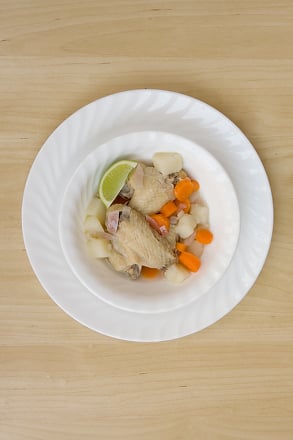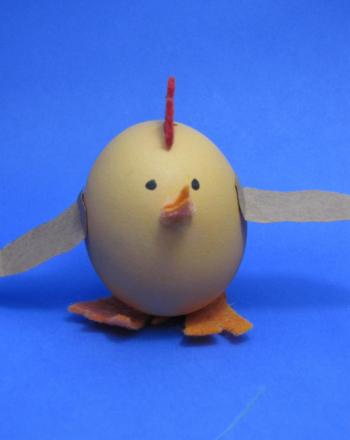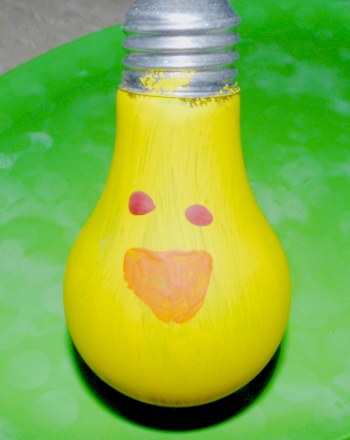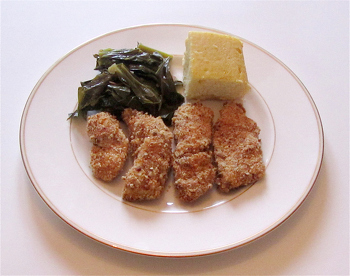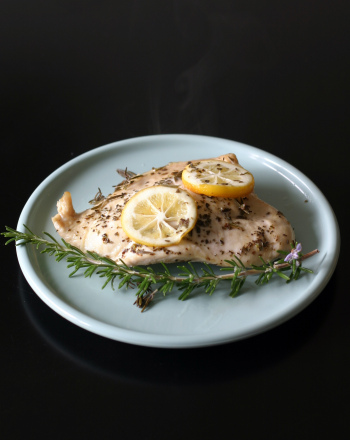Science project
Chicken Science
Grade Level: 6th - 8th; Type: Farming/Agriculture
Objective:
Observe and describe the lives of commercially raised chickens.
The goals of this project are:
- To study commercial chicken farming.
- To explain how chickens are processed from birth.
- To suggest new or improved farming methods.
Research Questions:
- What are the uses of chickens?
- How are baby chicks sexed?
- How many roosters and how many hens occupy a typical coop?
- What percentage of store-bought chicken is rooster meat?
There's a lot more to raising chickens than meets the eye. Chickens are used for meat and eggs, and are often kept as pets. Chicks are raised in different ways for different reasons. There are an equal number of hens and roosters at birth, but gender distribution in the coop is far from equal, with roughly 40 hens living with a single rooster. As pets, hens are generally preferred because they don't crow. This project involves a research study of the chicken farming industry.
Materials:
- Computer with Internet access
- Color printer
- Digital camera
- Typical office/hobby/hardware/craft supplies (paper, poster board, glue, etc.).
- Baby chicks and related supplies (optional)
Experimental Procedure:
- Carefully study the related literature (see bibliography below).
- Address all of the terms and research questions mentioned here.
- Search and print out interesting images relevant to your topic.
- Take interesting photos throughout the course of the experiment.
- Contact local chicken farmers for information and advice.
- OPTIONAL: Raise two or three baby chicks of your own.
- Write a detailed report about chicken farming techniques.
- Include graphics, charts, diagrams and live chickens in your science fair display.
Terms/Concepts: Broiler chickens; Genetically modified chickens; Layer chickens
References:
- http://www.ehow.com/about_5396715_commercial-chicken-farming.html (A how-to summary of commercial chicken farming).
- http://angelatunner.com/meet-a-farmer-joya-parsons-chicken-farmer/ (The life of a chicken farmer).
- http://www.scpr.org/news/2010/04/15/turning-chicken-poop-into-power/ (An energy source derived from chickens)
- http://www.mypetchicken.com/backyard-chickens/chicken-care/guide-toc.aspx (How to raise chickens as pets)
- Internet searches of your choosing. Search words or terms listed here, or make up your own phrases. Click on any results you find interesting. Have fun surfing the net!
Education.com provides the Science Fair Project Ideas for informational purposes only. Education.com does not make any guarantee or representation regarding the Science Fair Project Ideas and is not responsible or liable for any loss or damage, directly or indirectly, caused by your use of such information. By accessing the Science Fair Project Ideas, you waive and renounce any claims against Education.com that arise thereof. In addition, your access to Education.com's website and Science Fair Project Ideas is covered by Education.com's Privacy Policy and site Terms of Use, which include limitations on Education.com's liability.
Warning is hereby given that not all Project Ideas are appropriate for all individuals or in all circumstances. Implementation of any Science Project Idea should be undertaken only in appropriate settings and with appropriate parental or other supervision. Reading and following the safety precautions of all materials used in a project is the sole responsibility of each individual. For further information, consult your state's handbook of Science Safety.


